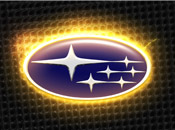View 2002 Subaru Outback Car Insurance Quotes
Have you finally had enough of trying to scrape together enough money to pay your insurance bill each month? Your situation is no different than millions of other vehicle owners. Due to the fact that there are so many options, it can be impossible to choose a lower cost insurer.
Compare free insurance quotes
Comparing insurance rates can be exhausting if you don’t know the best way to get rate quotes. You can waste hours talking to local insurance agents in your area, or you could save time and use online quoting to get rate comparisons in just a few minutes.
Most of the larger companies belong to an insurance system where insurance shoppers complete one form, and each company then gives them pricing. This saves time by eliminating form submissions for each company you want a rate for.
To find out how much you’re overpaying now click here to start a free quote.
The single downside to using this type of system is buyers cannot specifically choose which carriers you want to price. So if you want to select specific insurance companies to request quotes from, we put together a list of the cheapest insurance companies in your area. View list of insurance companies.
However you get your quotes, do your best to use the exact same quote information on every quote you get. If you compare different deductibles it’s not possible to determine which rate is truly the best.
Tailor your insurance coverage to you
When it comes to choosing adequate coverage, there really is no cookie cutter policy. Your needs are not the same as everyone else’s and your policy should reflect that. Here are some questions about coverages that may help highlight if your insurance needs could use an agent’s help.
- Will my vehicle be repaired with OEM or aftermarket parts?
- Is my dog or cat covered if injured in an accident?
- How high should my uninsured/underinsured coverage be in my state?
- Can I get a multi-policy discount for packaging my home and auto coverage?
- I have a DUI can I still get coverage?
- Does insurance cover damages from a DUI accident?
If you can’t answer these questions but you know they apply to you, then you may want to think about talking to an agent. To find an agent in your area, simply complete this short form or click here for a list of insurance companies in your area. It is quick, free and may give you better protection.
Car insurance coverage breakdown
Knowing the specifics of your policy helps when choosing the best coverages for your vehicles. The coverage terms in a policy can be ambiguous and nobody wants to actually read their policy. These are typical coverage types found on most car insurance policies.
Collision coverage protection
Collision coverage will pay to fix damage to your Outback caused by collision with a stationary object or other vehicle. You will need to pay your deductible then the remaining damage will be paid by your insurance company.
Collision insurance covers claims such as backing into a parked car, sideswiping another vehicle, colliding with another moving vehicle and hitting a mailbox. Collision coverage makes up a good portion of your premium, so consider dropping it from vehicles that are 8 years or older. Drivers also have the option to choose a higher deductible to bring the cost down.
Comprehensive coverage (or Other than Collision)
This covers damage OTHER than collision with another vehicle or object. A deductible will apply and then insurance will cover the rest of the damage.
Comprehensive coverage pays for claims such as damage from flooding, hitting a bird, vandalism and a broken windshield. The maximum amount you’ll receive from a claim is the market value of your vehicle, so if the vehicle’s value is low consider dropping full coverage.
Uninsured Motorist or Underinsured Motorist insurance
This coverage protects you and your vehicle from other drivers when they either have no liability insurance or not enough. Covered claims include injuries to you and your family and also any damage incurred to your Subaru Outback.
Because many people carry very low liability coverage limits, their liability coverage can quickly be exhausted. That’s why carrying high Uninsured/Underinsured Motorist coverage should not be overlooked.
Insurance for medical payments
Coverage for medical payments and/or PIP pay for short-term medical expenses for pain medications, X-ray expenses and chiropractic care. They are used in conjunction with a health insurance program or if you lack health insurance entirely. They cover you and your occupants as well as if you are hit as a while walking down the street. PIP is not universally available and may carry a deductible
Liability coverages
This provides protection from injuries or damage you cause to other people or property in an accident. It protects YOU against claims from other people. It does not cover your injuries or vehicle damage.
Liability coverage has three limits: per person bodily injury, per accident bodily injury, and a property damage limit. Your policy might show policy limits of 25/50/25 which means a $25,000 limit per person for injuries, $50,000 for the entire accident, and a limit of $25,000 paid for damaged property.
Liability coverage pays for things like structural damage, medical expenses, medical services and attorney fees. How much liability should you purchase? That is up to you, but you should buy as much as you can afford.

